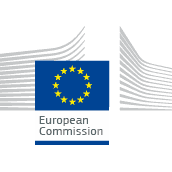
Implementation of best practices to promote health and prevent noncommunicable diseases and to reduce health inequalities - Transferring the Italian CARDIO 50 programme to other countries - PJ-05-2018
Deadline: Sep 13, 2018
CALL EXPIRED
CALL EXPIRED
Social Innovation
Disadvantaged People
Health Care
Sports
E-Health
Higher Education
Mental health
Clinical trials
Non-communicable chronic diseases have a major impact on the health of European citizens on the burden on health systems, and on the productivity of our societies. Contributing for decision makers in Member States to have the most up to date knowledge on best practices related to the reduction of such burden is thus most relevant to better support national health systems and EU citizens. Supporting the awareness, commitment and roll-out of initiatives that have shown to work is an essential way of creating and delivering value to the citizens.
Whereas a best practice cannot be replicated without adaptation and adjustment, the results, experience of ongoing and past initiatives always constitute a wealth of relevant knowledge. Taking them into consideration may allow to avoid mistakes or to leap frog painful development steps; ignoring them may result in huge wastes of time and resources, and of opportunities to improve public health.
Public health authorities should have access to the best scientific evidence base and to the expert evaluation of tried practices whenever considering disease prevention and management options. They should also have the opportunity to be briefed directly by those that have successfully led (past) initiatives and discuss, among others, pitfalls and success factors. Finally, they should be supported in the key steps of preparation of implementation so as to increase scope and likelihood of success.
Building on such information and support, and considering their national context and political priorities, Member States can then be in a better position to proceed with wide scale implementation of validated best practices and interventions. The stronger the commitment and the wider the roll-out, the more promising the results for the patients and citizens will be.
In order to support this process of promoting that more tested solutions benefit the citizen as fast and wide as possible, the Commission has set up the Steering Group on Health Promotion, Disease Prevention and Management of Non Communicable Diseases This Group selects best practices for transfer between countries with the support of the 3rd Health Programme and other sources.
In this context, the SGPP has recently selected two relevant best practices for transfer from the "owner" to other Member States/countries participating in the 3rd Health Programme. These are the Swedish Prescription of Physical Activity (PPA) initiative which was identified as a particularly valuable one and has been replicated in Iceland already as well as the Italian cardiovascular screening programme "CARDIO 50"
Several Member States have already expressed interest in discussing the rolling out of thses practicesand the Commission wishes to further support this process.
For that purpose, this call for proposals is being launched and should facilitate the transfer of the two selected best practices to other countries.
Topic 2 - Transferring the Italian CARDIO 50 programme to other countries
The proposals should describe how (principle actions of) the CARDIO 50 programme will be deployed in (selected areas of the) participating Member States, including how the responsible authorities will be involved and their commitment secured with the objective of achieving the sustainable, widest possible roll-out of the practice by the end of the project. It is suggested that the project has a time span of up to 3 years.
Among others, the proposals should describe how actions will be taken to:
- Provide a needs assessment and situation analysis;
- Share/up-date the existing materials including for the target population as well as the health professionals involved;
- Re-programme the existing IT tool to estimate the risk of the screened participants;
- Pilot the CARDIO 50 programme in selected regions or cities;
- Monitor and evaluate the activities;
- Assess the key factors to ensure sustainability for the CARDIO 50 programmes and ensure that these are taken.
Actions such as feasibility or needs assessments, revision and translations of materials, preparation of the IT tool for use in other countries, concrete pilot testing in selected regions/cities, study visits, staff exchange and twinning, workshops with stakeholders, etc., would be expected.
Unless duly justified, it is expected that the public health authorities of at least the following countries will be involved: Italy, Croatia, France, Hungary, Lithuania and Luxembourg.
The proposals should describe and justify which indicators will be used to measure process and outcome (e.g. the satisfaction of the 50-years old population and the participating health professionals, the participation level of the invited adults, etc.) and to monitor the implementation of the action and measure the success of transferring the best practice (e.g. potential sustainability and institutionalization e.g. through inclusion of CARDIO 50 in a regional health strategy or plan). To complement the task of monitoring and evaluation, the selected proposal will be provided with an OECD guide to support the monitoring of the implementation of best practices in general and the design of indicators in particular. The OECD may also provide specific advice to this action on how to optimise the cost-effectiveness of the best practice and an economic analysis of its results.
Public link: Only for registered users
 EU4 Health Programme (EU4H)
EU4 Health Programme (EU4H)
Please Log In to See This Section